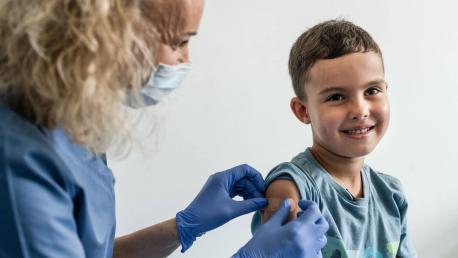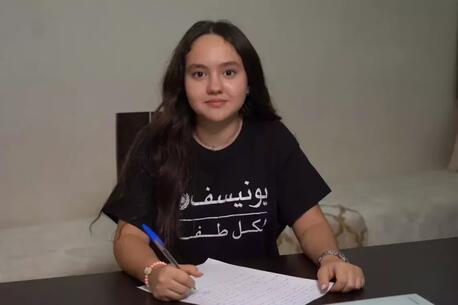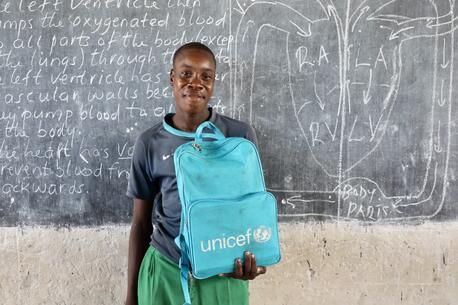
Measles
UNICEF and partners work to make sure every child has access to vaccines that protect against devastating and entirely preventable diseases like measles.
Measles is a highly contagious disease that kills tens of thousands of children every year. It can cause lifelong disabilities — including blindness, deafness and even permanent brain injury — and costs the global economy millions of dollars annually in medical expenses and lost productivity.
For people in high-income countries, measles seems like a disease from the past, thanks to the measles, mumps and rubella vaccine that is routinely administered during pediatric doctor’s visits. But measles remains a dire threat to children in low-income nations, with most deaths occurring in children under the age of 5.
For over two decades, UNICEF and partners have been working with governments and communities to carry out mass vaccination campaigns and to improve disease surveillance.
"The fact that any child dies from a vaccine-preventable disease like measles is frankly an outrage and a collective failure to protect the world's most vulnerable children," said Dr. Tedros Adhanom Ghebreyesus, Director-General of the World Health Organization. "To save lives, we must ensure everyone can benefit from vaccines — which means investing in immunization and quality health care as a right for all."
How do children miss out on the measles vaccine?
Vaccinating all children is a challenge when so many are displaced by conflict or natural disasters and other emergencies. Children often miss out if they live in rural or otherwise hard-to-reach areas, or when health care resources are under-funded or scarce.
Children are also bypassed because of humanitarian crises in places like Yemen and Syria. And in dozens of countries, measles campaigns were stalled during the coronavirus pandemic as health systems were strained to the breaking point.
UNICEF has a plan to stop measles
UNICEF’s Immunization Roadmap for 2018 – 2030 is an ambitious plan that seeks to leverage new technologies to reach unvaccinated children, tailoring strategies to fit the needs of different countries and regions. The plan calls for UNICEF to work closely with partners at the country, regional and global levels to achieve its goals.
The plan has UNICEF joining forces with governments, non-governmental organizations, rights-based organizations and private-sector entities to deliver immunization services in low- and middle-income countries. Collaboration among manufacturers, health agencies, governments and development partners is also crucial to keep vaccinations affordable and within reach for those who need them.
UNICEF, a supporter of child immunization since 1949, is a founding member of all key global immunization partnerships, including Gavi, the vaccine alliance; the Measles and Rubella Initiative; the Maternal and Neonatal Tetanus Elimination Initiation; the Global Polio Eradication Initiative; and the Global Vaccine Action Plan. UNICEF helps shapes the global vision, strategies and policies that make up the global immunization agenda.
Help UNICEF protect children against measles and other vaccine-preventable diseases.


